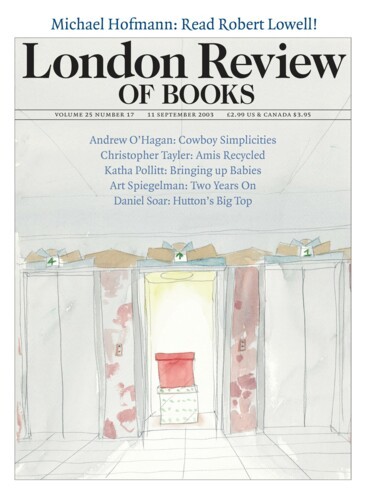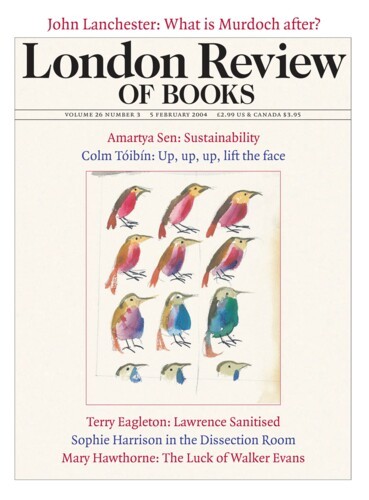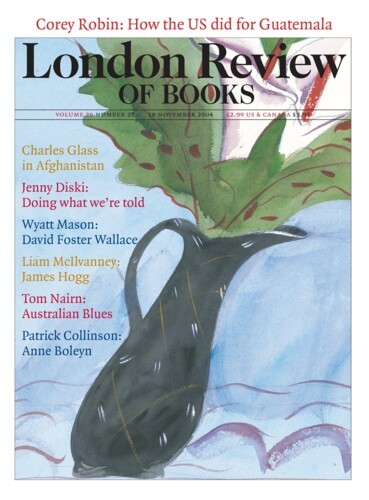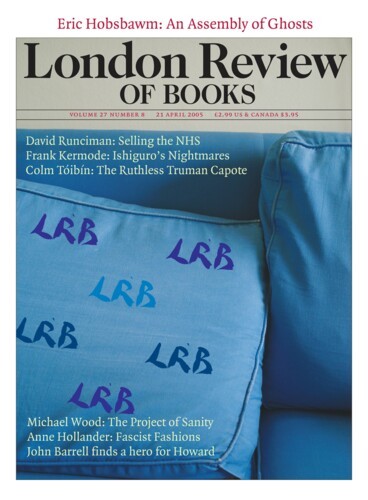Can you close your eyes without falling over? Symptoms of Syphilis
Hugh Pennington, 11 September 2003
Syphilis and the League of Nations have more in common than you might think. Both were dumped into the dustbin of history in the 1940s: syphilis by penicillin, the League of Nations by the Second World War. But the connection goes further than chronological coincidence. Before the war, the League took a deep and direct interest in syphilis, with its Health Organisation arranging conferences...





